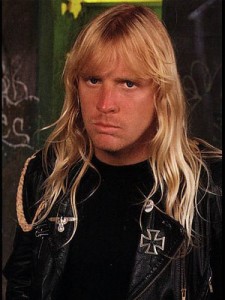 Almost two weeks ago, Slayer guitarist Jeff Hanneman died of liver failure in a California hospital. However, like any event involving people who have done important things, his death sent ripples throughout the world.
Almost two weeks ago, Slayer guitarist Jeff Hanneman died of liver failure in a California hospital. However, like any event involving people who have done important things, his death sent ripples throughout the world.
First, Slayer fans worldwide realized that Slayer is now de facto dead. Formed of the core of Hanneman, Araya, King and Lombardo, Slayer was based on the merging of those talents. It probably cannot survive without any particular one. In addition, although King and Araya made many important contributions, much of the material that gave Slayer character above and beyond its hard and fast style came from Hanneman. Without him, a vital part of the equation will be missing, and it could be one of the parts that made Slayer much more than just their technique.
Second, Slayer is a form of mascot and leader for the underground metal movement. Although this is rarely acknowledge, Slayer was a speed metal (Metallica, Testament, Rigor Mortis) band who used the tremolo strum to make what was musically closer to death metal, evolving from their more “heavy metal” beginnings to an angular and disharmonic nightmare of chromatic riffs and centerless solos. Alongside Bathory and Hellhammer, Slayer invented the modern style of heavy metal, and by their contributed contributions, gave it guidance and a figurehead. When death metal bands got lost in songwriting, they turned to Slayer; even black metal and grindcore bands lift riffs from that vital back catalogue. Slayer is a huge musical force but now is firmly entrenched in the past, not the present.
Finally, Slayer is a symbol of all that is metal, with Hanneman at the front as the innovator of brooding classics such as “South of Heaven” and “At Dawn They Sleep.” His poetic approach to riffs, songs and lyrics made metal rise up from being another genre about personal drama and getting laid, and turned it into a mythological force worthy of J.R.R. Tolkien, William Blake, Mary Shelley, Bram Stoker or John Milton. Punk bands wrote about the decay of society, and hard rock bands like Led Zeppelin wrote about Hobbits and Satan, but Slayer put them together in the same way Black Sabbath’s “War Pigs” did: a mythology underlying existence that explains the shared perceptual confusion that causes us to cause our own problems.
This is why Slayer is important to metal, and to the larger culture beyond it, and why Jeff Hanneman is more than just an excellent songwriter and guitarist. He is part of what made metal, and what made metal a legend. His passing is the end of an era, and the call to us to begin a new one.
With that in mind, we present a compilation of statements by people involved with music who wanted to speak a few words about the power of Jeff Hanneman, Slayer and the importance of those to metal. Some of the following are cribbed from Faceplant or other websites, but all are authentic:
Growing up in a small, West Texas oilfield town, your options were limited: you became a football hero, a juvenile delinquent, or you turned to some form of escapism. Comics, books and most of all, music were my saviors. They became my bulwark against impending suicide. In my early years, Kiss, Judas Priest and AC/DC were my mainstays. Then around ’79 a couple of older friends introduced me to the “Second Wave of Punk”. The Ramones, Sex Pistols, The Stranglers, DEVO, these became my new gods, but I never lost my love of those heavier bands. Living in rural Texas and years before the internet, you were always a few steps behind. You might stumble across a magazine, someones visiting older brother from college, or just word of mouth. So I slowly became aware of the already in full swing Hardcore scene. I quickly developed an affinity for this new aggression: Black Flag, Circle Jerks, Minor Threat, Misfits and Bad Brains. This, to me, seemed the pinnacle of extreme music.
Even in the middle of nowhere, where few of either existed, I noticed the segregation of Metal vs Punk. Though Metal was a guilty pleasure, being young and stupid I still took pride in ridiculing the Metalheads as often as possible. Around the mid-80’s things took a strange turn. The lines were blurred. I was already a young adult slaving away in an oilfield job, on my first marriage with an infant son. My only connection to underground music came every Saturday night at 10PM courtesy of 2 hour radio show on KOCV, the Odessa college student ran radio station. I don’t remember the name of the show, but I do remember the host, Danny Hardcore, a local skate punk with a penchant for all things heavy. It was then I first heard the insanity of Suicidal Tendencies, SOD, Voïvod and….Slayer. And those lads from Huntington Park, CA basically scared the shit out of me. Faster than anything I’d ever heard, the pentagram logo that shook my Southern Baptist sensibilities, and the insanity surrounding everything you could get your hands regarding their fanatical “Slaytanic” following.
I was hooked.
And one of the major catalyst behind this explosion of sound so completely new and unrelenting was Jeff Hanneman. From everything I could learn about him, he was a kindred spirit. I feel totally confident in saying that Metal, Hardcore, Thrash and about 20 other genres of extreme music would not have existed today without Jeff.
When I look back at all of my favorite Slayer songs, I see his hand. Metalheads, especially those that think of themselves as the Stewards of All That Is True, take a particular perverse satisfaction in proclaim everything after “insert favorite here” in the Slayer catalog as shit, but I believe time will tell a different tale. The man will be sorely missed. Whether completely cheesy or in bad taste, tonight I will lift my glass high, raise a toast and give a mighty HAIL to a fallen Hessian who made a difference, and who carved an indelible mark into the history of a music I hold dear.
I believe Jeff would approve.
– Jeff Colwell, Plague Haus
I am still at a loss for words over Jeff’s passing. Slayer along with Metallica, Raven, Anvil, Venom, Overkill and others were some of the early bands I fell in love with and really got me started into the underground metal scene. The first time I saw Slayer live was in 1985 on the “Hell Awaits” tour at Lamour’s in Brooklyn, NY. They completely blew me away with the speed and intensity of their music. In 1986 I saw them on their ‘Reign in Blood” tour in Trenton, NJ at City Gardens and I dove off the stage during ‘Chemical Warfare” and almost broke my back as I couldn’t walk for over 3 days!!! Slayer has always been one of my favorite bands and hands down in my opinion they are easily the best underground metal live band that I have ever seen and I have been going to shows since 1984. I never met Jeff, but his bands music have been a big part of my life and will be for years to come. Hell when I need some pick me up music at the gym….it is “Hell Awaits” time. I never got to meet Jeff, but his music will live on with me for the rest of my life and Jeff RIP my man and thanks to you and your music for taking me along this incredible ride of underground metal music which will be planted in brain for as long as I live and your band and music were big part of in the beginning and are still a big part today….”FUCKIN SLAYER”…….
– Chris Forbes, Metal Core Fanzine
Thrash Metal lost one of it s best man! The Hell awaits – tour 1985 (where the pic with drunk me is from) was one of the most important tours in our career – thanx for the great memories Jeff! What a loss for the scene! Rest in Piece brother! – Schmier, Destruction
For a lot of us Metalheads back in the late 80’s and early 90’s, Slayer was like benchmark which we set by default and compared (mostly times unjustly) other bands for their intensity,song writing abilities and aggression.The first 5 albums by this legendary band were always placed right on top,any beer table conversation had to veer its way around and come back to Slayer,the reference point always hovered around them and for a lot of kids who were into Hard Rock or Heavy Metal, the threshold moment of crossing over into the heavier,darker and more extreme realms had to be with “Hell Awaits” or “Reign In Blood”. Those who passed the test were branded for life,”Slayer” permanently tattooed on their foreheads,the passing of Jeff Hanneman is the end of an era and unfortunately Slayer never will be the same again,Jeff will forever be immortal in the hearts of the fans, may the riffmeister rest in peace. – Vikram/Dying Embrace, India
Jeff Hanneman shouldered the revolution of heavy music with a unique and original approach on the instrument, influencing a horde of musicians to follow in his tracks at the same time. His riffs, lyrics and songs are some of the band’s best and the genre’s fiercest. His contributions are enormous and should be celebrated and hailed! – Eric Massicotte
What separated Jeff from the rest of the metal pack was his rhythm technique, his songwriting, and that for which he will be most remembered—his riffs. But his frenzied, turbulent solos were also an important part of the package. They weren’t about showing off. They served a greater artistic purpose—to sonically channel the qualities of Slayer’s lyrical content. They were sometimes abrasive, sometimes jarring, and at times disturbing. They had less in common with typical rock-guitar virtuosos than they did with the sonic collages of avant-garde improvisers such as Derek Bailey and John Zorn, the latter of whom is a self-professed Slayer fan who has cited the band as an inspiration. Though Jeff’s wider, more holistic guitar approach didn’t garner the same accolades as some of his more technically proficient contemporaries, Jeff never waivered from his original approach. And the fact that he continued to attack his guitar with relentless abandon—as though he were a linebacker on his beloved Oakland Raiders (whose logo adorned some of his signature ESP guitars)—is without a doubt a big part of why Slayer’s music will always be deemed one of metal’s high watermarks.
If you’ve ever seen Slayer live, you’ve felt exactly what propelled the band’s popularity past those of Venom and other classic-metal influences. In fact, prior to Hanneman and his bandmates’ groundbreaking albums—including 1986’s bar-setting Reign in Blood—many believed metal could never reach such levels of popularity and fan dedication. Before Slayer, metal had never had such razor-sharp articulation, tightness, and balance between sound and stops. This all-out sonic assault was about the shock, the screams, the drums, and—again, most importantly—the riffs. And it was Hanneman who brought so many of the band’s timeless riffs.
– Alex Skolnick, Testament
The only other band that completely changed my life. Without Venom or Slayer there would be no Kult ov Azazel or any of the music I have created since my teenage years as they were the first two bands I discovered and I was a rabid fan. As crazy as it will sound those two bands molded me into who I am today. I can remember walking around my Bartlett neighborhood with a ghetto blaster and blaring this album at top volume. Even listening to this brings back a flood of those memories. – Julian Hollowell, Kult of Azazel, Von
I need to shed some more life on one of the greatest guitar players that has walked this earth and that has truly inspired what i do today.Jeff Hanneman R.I.P. I walked off stage in Paris France on Thursday night to find out that one of my hero,s was no longer with us.He was the heart soul and attitude that was Slayer.Many people would often ask to describe my guitar playing and i would say Hanneman meets Denner.He was the real deal not this rock star poser type unlike Mr King.Slayer dies for good with Jeff and i have not stopped thinking these past few days while in Europe how much his music has meant to me.Last night Johnny from Unleashed made a honorable toast to Jeff Hannaman and i tell you it really chocked me up.Not many greats in the world today and he was one of the rare breed that created his own path in this life.Long live Jeff Hanneman his spirit lives on forever. – Alex Bouks, Incantation, Goreaphobia
http://www.youtube.com/watch?v=EdjS4qMXQmQ
http://www.youtube.com/watch?v=sNwfRGLOWtc
http://www.youtube.com/watch?v=PNMoJiPBVkI
http://www.youtube.com/watch?v=NbGqPRFyHtg
5 CommentsTags: death metal, jeff hanneman, slayer, Speed Metal, underground metal
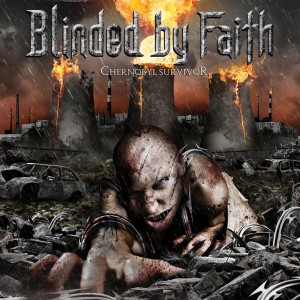
 DeathMetal.org continues its exploration of radio with a podcast of death metal, dark ambient and fragments of literature. This format allows all of us to see the music we enjoy in the context of the ideas which inspired it.
DeathMetal.org continues its exploration of radio with a podcast of death metal, dark ambient and fragments of literature. This format allows all of us to see the music we enjoy in the context of the ideas which inspired it.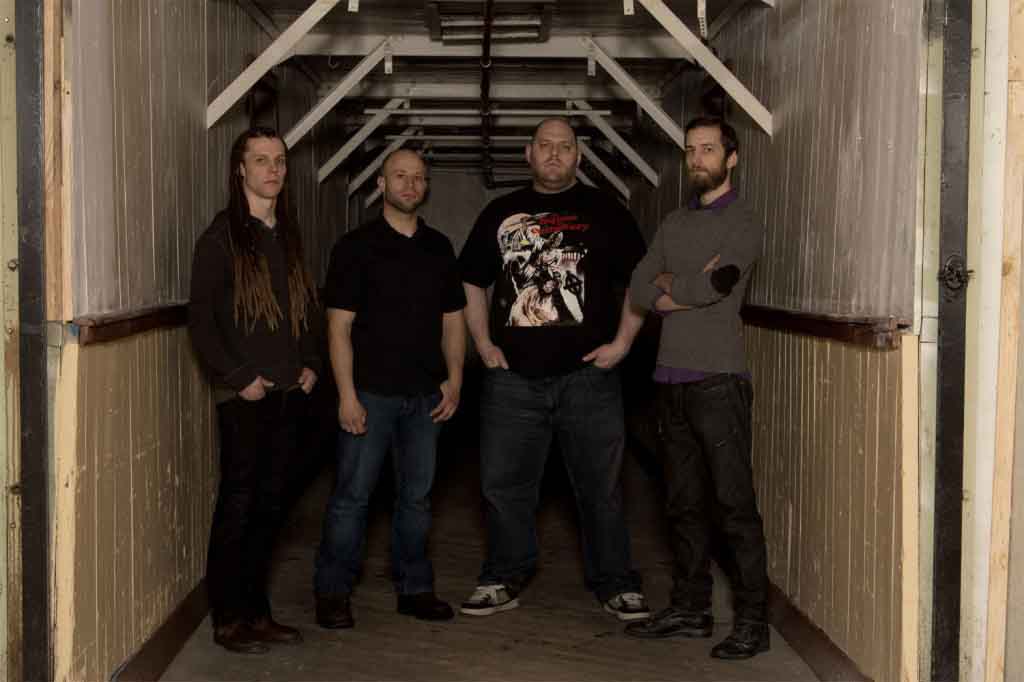
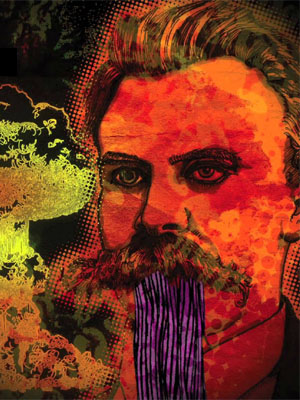 I’ve been listening to “God Is Dead?”-the first single off Black Sabbath’s new album 13, since yesterday. It’s really good and really Sabbath. I’m obsessing. And maybe I’m a rabid fan who’s lain in wait and whose enthusiasm has gotten the better of him. But this is enlivening me in the way only music can. So, I’m going to return the favor and Analyze It to Life.
I’ve been listening to “God Is Dead?”-the first single off Black Sabbath’s new album 13, since yesterday. It’s really good and really Sabbath. I’m obsessing. And maybe I’m a rabid fan who’s lain in wait and whose enthusiasm has gotten the better of him. But this is enlivening me in the way only music can. So, I’m going to return the favor and Analyze It to Life.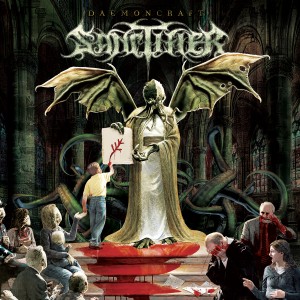
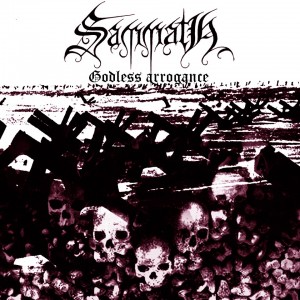 Dutch-German blazing black metal act
Dutch-German blazing black metal act 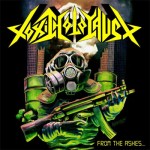 Toxic Holocaust – From the Ashes of Nuclear Destruction: This is not bad music, but it’s an imitation of something in the rearview mirror, which is hard enough without a tendency to combine the worst aspects of several genres. The songs are chaotic like American thrash, but then like German speed metal, they’re very chanty with lots of chorus activity and not much deviation from that rhythm and the chord progression that carries it. In fact, this was the kind of music that back in the 1980s, drove people to Metallica and Slayer for more of a musical experience. Most of what you get with Toxic Holocaust is like a suburban rap album, which is to say that you hear the vocals and pick up their rhythm, and then there’s distracting stuff going on in the background. Whatever the chorus is gets hammered in your brain because it repeats again and again (and again, and again). Riffs are very similar, and derive from identifiable archetypes in classic speed metal songs. Like most of those bands in the 1980s, it’s hard to construct an argument against this. It isn’t musically incompetent, and it’s roughly of the same style, and it’s definitely metally as opposed to the alt-indie-nu crowd. However, really the question is what’s missing, and we can’t spot it because neither it nor an analogue is there. This band lacks purpose. Songs are there to be like other songs, not to express something unique. While nostalgia is neat and all, this puts Toxic Holocaust in the same camp as the big pop bands, who are just making songs to sound like other successful songs, be catchy and make people dance.
Toxic Holocaust – From the Ashes of Nuclear Destruction: This is not bad music, but it’s an imitation of something in the rearview mirror, which is hard enough without a tendency to combine the worst aspects of several genres. The songs are chaotic like American thrash, but then like German speed metal, they’re very chanty with lots of chorus activity and not much deviation from that rhythm and the chord progression that carries it. In fact, this was the kind of music that back in the 1980s, drove people to Metallica and Slayer for more of a musical experience. Most of what you get with Toxic Holocaust is like a suburban rap album, which is to say that you hear the vocals and pick up their rhythm, and then there’s distracting stuff going on in the background. Whatever the chorus is gets hammered in your brain because it repeats again and again (and again, and again). Riffs are very similar, and derive from identifiable archetypes in classic speed metal songs. Like most of those bands in the 1980s, it’s hard to construct an argument against this. It isn’t musically incompetent, and it’s roughly of the same style, and it’s definitely metally as opposed to the alt-indie-nu crowd. However, really the question is what’s missing, and we can’t spot it because neither it nor an analogue is there. This band lacks purpose. Songs are there to be like other songs, not to express something unique. While nostalgia is neat and all, this puts Toxic Holocaust in the same camp as the big pop bands, who are just making songs to sound like other successful songs, be catchy and make people dance. 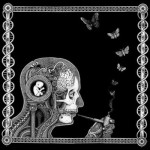 Soen – Cognitive: Somehow, people say they’re doing what they’re afraid they’re not doing. Soen is nu-progressive metal, which means that it’s basically a very vocals-intense, “passionate” form of indie rock — think post-1990s style drama-intense male vocalist nonsense — with occasional metal riffs. If you don’t mind the discount Morrisey style vocals, you will not be immediately set off by this album, but the grim fact is that this style of music is easy to produce and bands are a dime a dozen. These “deep” vocals end up sounding more like someone belting out over-emphatic drama, mainly because once you strip aside the technique, there’s little actual variation. The metal riffs can be surprisingly good but not original. It’s amazing how people have been making this style of music for decades and yet it doesn’t occur to each generation that maybe, just maybe, this stuff isn’t as new and revolutionary as it claims. If you like regular rock music, and want it to have more soul-searching vocals that override the other form factors, as in Coldplay, you’ll really dig this. If you’re looking for metal, you’ll end up fast-forwarding between the metal riffs and have a 2.3 minute album here.
Soen – Cognitive: Somehow, people say they’re doing what they’re afraid they’re not doing. Soen is nu-progressive metal, which means that it’s basically a very vocals-intense, “passionate” form of indie rock — think post-1990s style drama-intense male vocalist nonsense — with occasional metal riffs. If you don’t mind the discount Morrisey style vocals, you will not be immediately set off by this album, but the grim fact is that this style of music is easy to produce and bands are a dime a dozen. These “deep” vocals end up sounding more like someone belting out over-emphatic drama, mainly because once you strip aside the technique, there’s little actual variation. The metal riffs can be surprisingly good but not original. It’s amazing how people have been making this style of music for decades and yet it doesn’t occur to each generation that maybe, just maybe, this stuff isn’t as new and revolutionary as it claims. If you like regular rock music, and want it to have more soul-searching vocals that override the other form factors, as in Coldplay, you’ll really dig this. If you’re looking for metal, you’ll end up fast-forwarding between the metal riffs and have a 2.3 minute album here.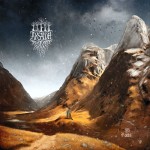
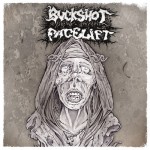
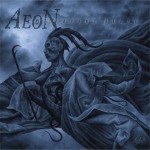 Aeon – Aeons Black: Sounding like later Deicide with influences from the mid-paced death metal of the last decade, Aeon creates some compelling rhythms and uses a heavy NYDM influence through harmonic guitar squeals and repetitive downstroke rhythms. The result is “heavy,” but melody is used only as an effect, and the album is assembled of many similar pieces that lacking a gestalt, flow together into catchy wall paper. The result is thankfully somewhat death metal, but has a newer metal influence, and through its lack of focus, combines different forms and styles into one giant approximation that has no really distinct point of view. It’s like a xerox of a xerox of a photograph of Silly Putty(tm) imprint of the original. While it isn’t incompetent, and has some moments of inspired musicality, it has no content that it manages to express and so it feels like a disorganized detour into the late 1990s, perhaps death metal being used to make an infomercial. I can see the juice machines, instant waffle makers, hair braders, etc. now, because that’s what this album feels like: the shelves of a death metal store, arranged in no particular order, as you walk past and then go out the door, not having found anything worthy of permanent acquisition.
Aeon – Aeons Black: Sounding like later Deicide with influences from the mid-paced death metal of the last decade, Aeon creates some compelling rhythms and uses a heavy NYDM influence through harmonic guitar squeals and repetitive downstroke rhythms. The result is “heavy,” but melody is used only as an effect, and the album is assembled of many similar pieces that lacking a gestalt, flow together into catchy wall paper. The result is thankfully somewhat death metal, but has a newer metal influence, and through its lack of focus, combines different forms and styles into one giant approximation that has no really distinct point of view. It’s like a xerox of a xerox of a photograph of Silly Putty(tm) imprint of the original. While it isn’t incompetent, and has some moments of inspired musicality, it has no content that it manages to express and so it feels like a disorganized detour into the late 1990s, perhaps death metal being used to make an infomercial. I can see the juice machines, instant waffle makers, hair braders, etc. now, because that’s what this album feels like: the shelves of a death metal store, arranged in no particular order, as you walk past and then go out the door, not having found anything worthy of permanent acquisition.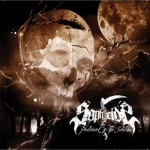
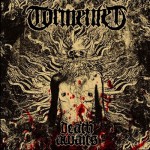 Tormented – Death Awaits: In 1992, the average death metal fan would walk 30 miles through the snow uphill both ways to hear a new Swedish death metal album. Sometime in the 2000s, Daniel Ekeroth made a handy video about how to get the Swedish guitar sound, and at least 4,096 hipster bands suddenly became Entombed-worship acts. The problem is that they don’t understand why Entombed did what Entombed did, so they’re imitating the appearance of Entombed and then injecting their own motivations into the art. Unforunately for them, their motivations are often what hipster bands want, which is ironic acclaim and something to brag about as they make coffees at the day job. Tormented is a perfect case in point. It’s competent, the riffs are gently melodic at times, and songs hold together thanks to a riff-chorus assembly with transitional riffs worked in. The problem is that these riffs express nothing, so they’re based on existing forms in a “pick one from column A, one from column B, one from column C” approach. This misses the point of death metal, which is to stich riffs together so that they tell a story that expands as the song goes on, then revert to a simplest possible reduction. What is revealed at the center of this music is an obsession with repetitive catchy vocals, and hard rock style relatively immobile riffs, instead of the soaring tremolo architectures that made Swedish death metal great. On the surface, this is pure Swede-worship; underneath, it has more in common with Wolfmother than Entombed.
Tormented – Death Awaits: In 1992, the average death metal fan would walk 30 miles through the snow uphill both ways to hear a new Swedish death metal album. Sometime in the 2000s, Daniel Ekeroth made a handy video about how to get the Swedish guitar sound, and at least 4,096 hipster bands suddenly became Entombed-worship acts. The problem is that they don’t understand why Entombed did what Entombed did, so they’re imitating the appearance of Entombed and then injecting their own motivations into the art. Unforunately for them, their motivations are often what hipster bands want, which is ironic acclaim and something to brag about as they make coffees at the day job. Tormented is a perfect case in point. It’s competent, the riffs are gently melodic at times, and songs hold together thanks to a riff-chorus assembly with transitional riffs worked in. The problem is that these riffs express nothing, so they’re based on existing forms in a “pick one from column A, one from column B, one from column C” approach. This misses the point of death metal, which is to stich riffs together so that they tell a story that expands as the song goes on, then revert to a simplest possible reduction. What is revealed at the center of this music is an obsession with repetitive catchy vocals, and hard rock style relatively immobile riffs, instead of the soaring tremolo architectures that made Swedish death metal great. On the surface, this is pure Swede-worship; underneath, it has more in common with Wolfmother than Entombed.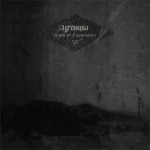 Agrimonia – Rites of Separation: It’s time we admit that post-metal is not metal, but new age metal. Or rather, it’s new age rock that wants to be metal so it can be “rebellious.” Officially rebellious, that is, so that if anyone claims they’re worshipping Satan or extremists, they can point to their soft juicy fruity core of new age everybody-kumbaya-happy. Post-metal not only takes influences from the new age movement and its desire for gentle ambience with some kind of quasi-spiritualist uplifting feeling that makes us feel like our rotting industrial dystopia encloses a paradise of personal emotional balance, positive thinking, etc. This music is like Sonic Youth throwing in some metal riffs and then droning on a note or two, with “bizarre” song structures that are actually very much in the verse-chorus with transitions style of post-punk bands. Nothing is badly done but the music has no soul. Its essence is in tossing out anything it thinks you might like, with no relationship between those parts. Thus it’s like hearing a conversation on the subway, where you pick up on juicy phrases and the rest is hubbub which fades into the ratcheting clack of the passing tracks.
Agrimonia – Rites of Separation: It’s time we admit that post-metal is not metal, but new age metal. Or rather, it’s new age rock that wants to be metal so it can be “rebellious.” Officially rebellious, that is, so that if anyone claims they’re worshipping Satan or extremists, they can point to their soft juicy fruity core of new age everybody-kumbaya-happy. Post-metal not only takes influences from the new age movement and its desire for gentle ambience with some kind of quasi-spiritualist uplifting feeling that makes us feel like our rotting industrial dystopia encloses a paradise of personal emotional balance, positive thinking, etc. This music is like Sonic Youth throwing in some metal riffs and then droning on a note or two, with “bizarre” song structures that are actually very much in the verse-chorus with transitions style of post-punk bands. Nothing is badly done but the music has no soul. Its essence is in tossing out anything it thinks you might like, with no relationship between those parts. Thus it’s like hearing a conversation on the subway, where you pick up on juicy phrases and the rest is hubbub which fades into the ratcheting clack of the passing tracks.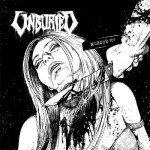
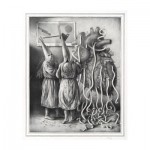
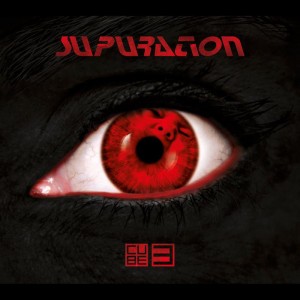 During the early 1990s, death metal was subject to criticism because people feared it. They would claim that the bands couldn’t play, or didn’t know their scales, or were otherwise incompetent.
During the early 1990s, death metal was subject to criticism because people feared it. They would claim that the bands couldn’t play, or didn’t know their scales, or were otherwise incompetent.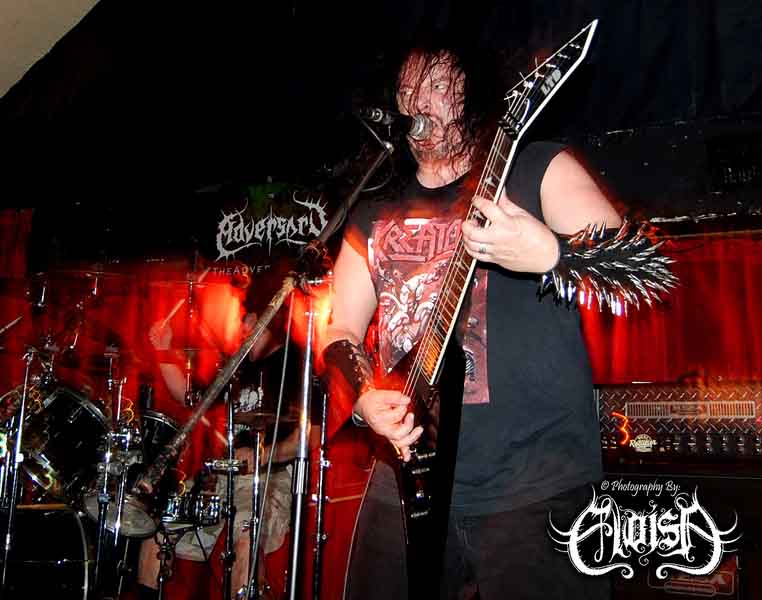 Tom Stevens has been providing technical extreme metal since the 80s. Known as a virtuoso on guitar and owning the distro/label Nokturnel Eclipse, he’s been a supporter of the old school since it began. Though Nokturnel has gone through numerous line-up changes, Stevens has defied odds and kept the flame burning with an indomitable urge to shred.
Tom Stevens has been providing technical extreme metal since the 80s. Known as a virtuoso on guitar and owning the distro/label Nokturnel Eclipse, he’s been a supporter of the old school since it began. Though Nokturnel has gone through numerous line-up changes, Stevens has defied odds and kept the flame burning with an indomitable urge to shred.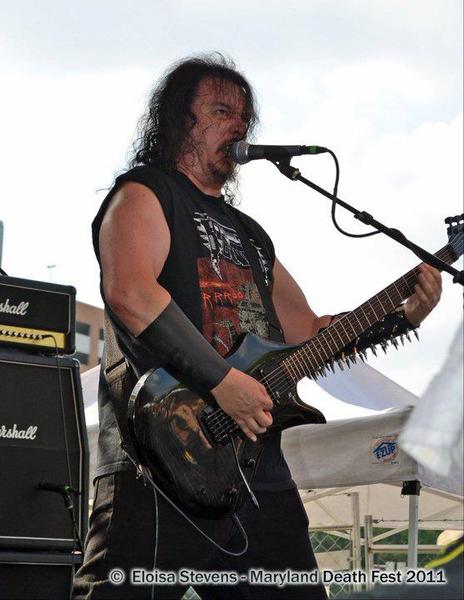 I haven’t heard much on Nokturnel since your last recording ‘Ancestral Calling’. What have you been up to?
I haven’t heard much on Nokturnel since your last recording ‘Ancestral Calling’. What have you been up to?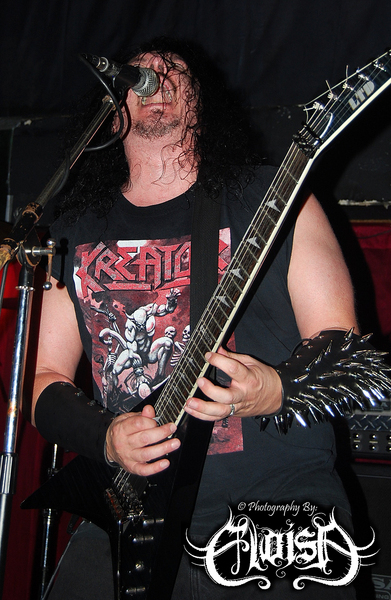 You played with Incantation for a while. What was it like touring with them? Any highlights that you’d like to share?
You played with Incantation for a while. What was it like touring with them? Any highlights that you’d like to share?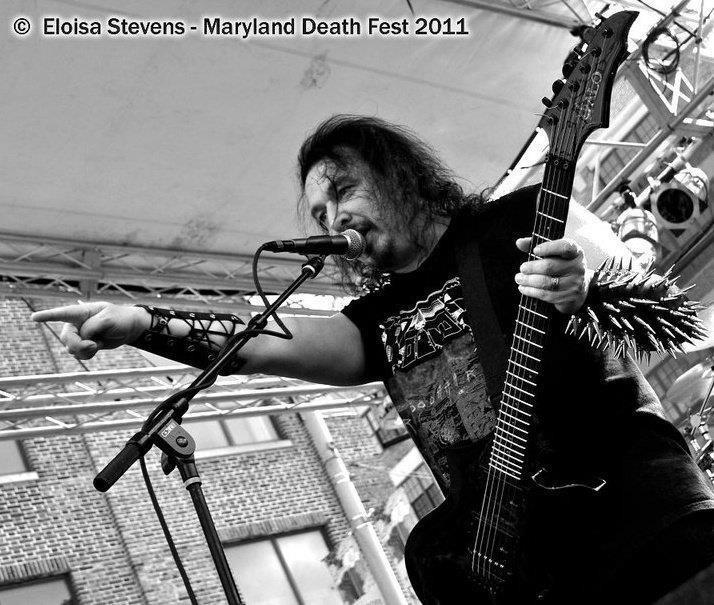 Please detail your contributions to Ripping Corpse. Are you still friends with Erik Rutan?
Please detail your contributions to Ripping Corpse. Are you still friends with Erik Rutan?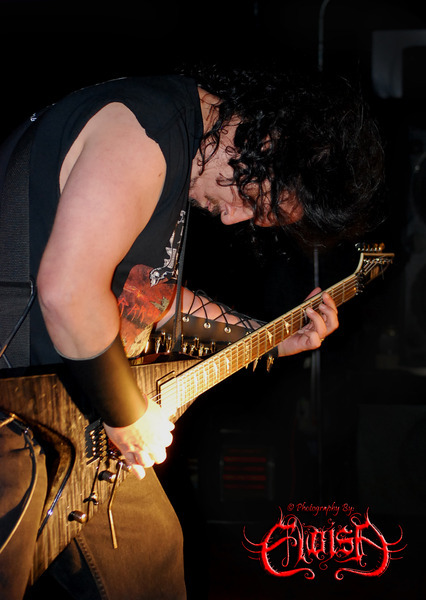 How long have you played guitar? You’re quite an amazing musician. What type of equipment, guitars, strings, etc do you use? What type of equipment would you recommend to new guitarists that are just starting out?
How long have you played guitar? You’re quite an amazing musician. What type of equipment, guitars, strings, etc do you use? What type of equipment would you recommend to new guitarists that are just starting out?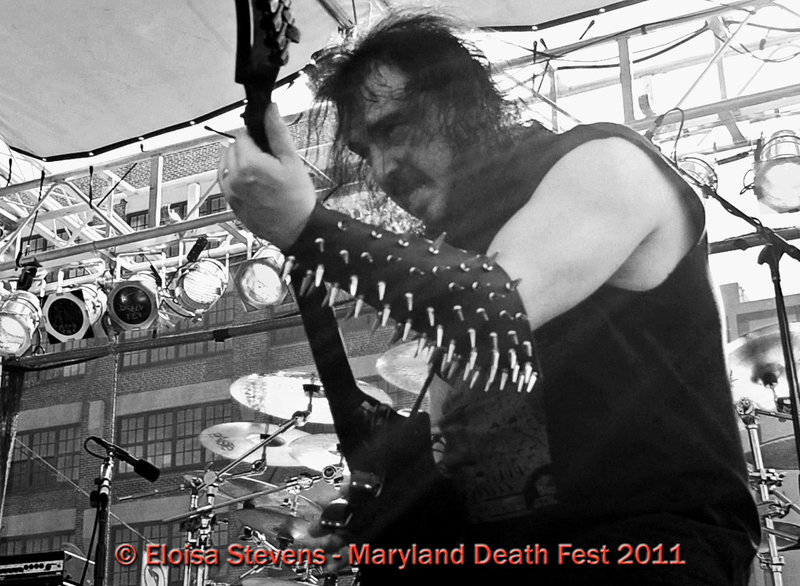 How well was the single “Ancestral Calling” received? What inspired you to write it? The riffs don’t seem to differentiate much, but the technical ability is amazing. How did you approach this song? What was your mindset? How will Nokturnel top this song in the future?
How well was the single “Ancestral Calling” received? What inspired you to write it? The riffs don’t seem to differentiate much, but the technical ability is amazing. How did you approach this song? What was your mindset? How will Nokturnel top this song in the future?
